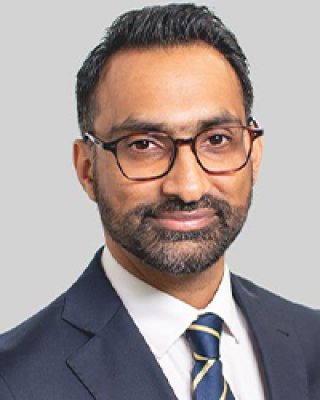Blog written by Dr Umasuthan Srirangalingam, Consultant in Endocrinology & Diabetes, UCLH
Why did you first want to get involved in doing research, and how did you first get involved?

At UCLH I look after a cohort of patients with congenital adrenal hyperplasia who have a hormonal deficiency which means they require life-long steroid therapy. Several new, essentially ‘steroid-sparing’ agents had emerged over the last few years, running through various phases of clinical trials. There was a clear clinical need and so I decided it was the time to take the plunge! It was now or never.
The early days were a little precarious. Just as I started the R&D process, the Covid pandemic struck, and everything shut down – and my thoughts moved from trials to survival. During the pandemic, I stepped back from thoughts of research and went back into the thick of it on the wards. As we eventually emerged out of the pandemic I wondered whether it would be possible to get the clinical trials up and running, with the ongoing restrictions to normal services.
In fact it was the wards, serendipitously, that came to the rescue here. Bumping into senior colleagues on shift at UCLH always helps. As the pandemic settled, catching up with Professor Bryan Williams, grabbing a coffee together, getting advice and encouragement from him was so useful and helped me get back on track.
Once the clinical trial was up and running, for the first 6 months in research, it was just my trial nurse, guardian of the SITE FILE (which holds all the important information about a trial) – and me doing all the trial visits – and there were lots! We had to deal with all sorts of issues: How do we register this patient credit card for expenses? What is the PIN number for the patient’s trial phone? Why is this or that technology not working as it should? How can I fit all my clinical work and research in a day or a week? I needed to build a team.
Fast forward 18 months, my Research Nurse is still with me, and I now understand how important the SITE FILE is! Within the Clinical Research Facility (CRF), I’m now working with two talented research fellows and have access to a wealth of experience and expertise amongst its staff, who are friends and colleagues now.
More recently I had the opportunity to take part in NIHR community engagement event for the local Bangladeshi community. The day was lots of fun - a blood glucose meter and blood pressure machine have never been such a crowd pleaser! The event made me realise that my work needs to encompass not only trials but also engaging the public in our research process.
I have also now experienced my first serious adverse event on a trial (not drug-related fortunately), and then our first audit. A note to myself - everything goes in the SITE FILE, everything. You never know what you might need from it in the future!
What have been the best aspects and top highlights of your career in research so far?
The highlights of my research career so far have been new challenges, building a team from scratch, getting to spend time with my patients beyond the clinic, seeing my clinical practice changing, and my work being informed by the research we are doing.
More specific highlights include being in the top tier of recruiters worldwide for one study and being able to deliver a world-first-in-human administration of a new class of drug in a phase 1 trial, with the help of the slick and efficient CRF team.
What advice would you give to others who are considered a career in research – and what advice would you give someone to progress in research to being a PI?
For others who aspire to a career in research, I would advise:
- Will this benefit my patients? - always ask whether your research will be beneficial to patients. If the answer is yes, you can’t go too far wrong.
- Show willing - don’t wait for an invitation to be a PI to come to you. You need to get your hands dirty, take the big leap and demonstrate your potential first.
- Don’t re-invent the wheel – get help, it’s out there - Speak to those who recently took up a role as a PI. Keep to your core skill set and get help with things you find challenging. It’s a rapid learning curve but you will pick things up along the way.
- Finally and most importantly, did I mention this? - everything goes in the SITE FILE!
 Close
Close

